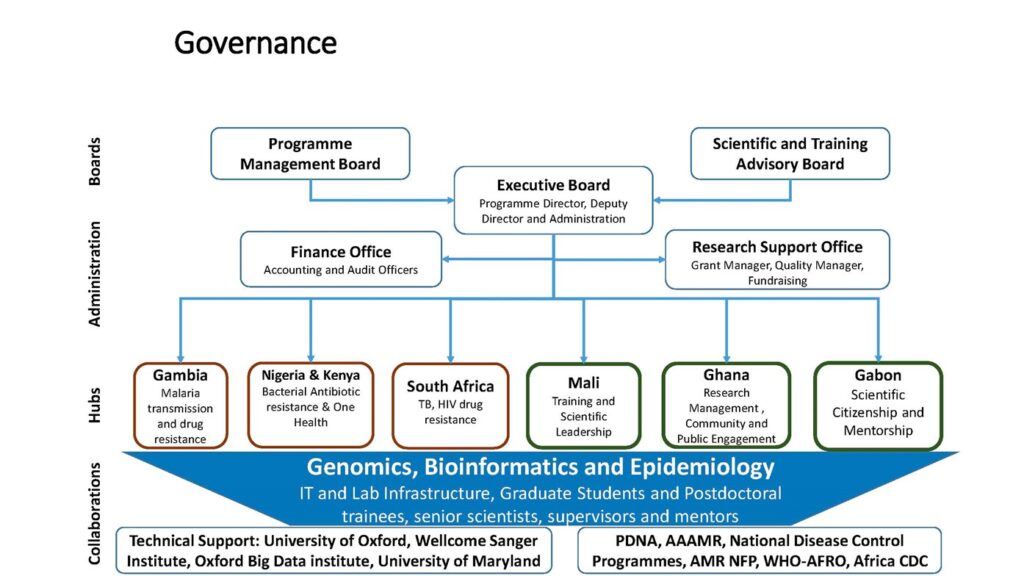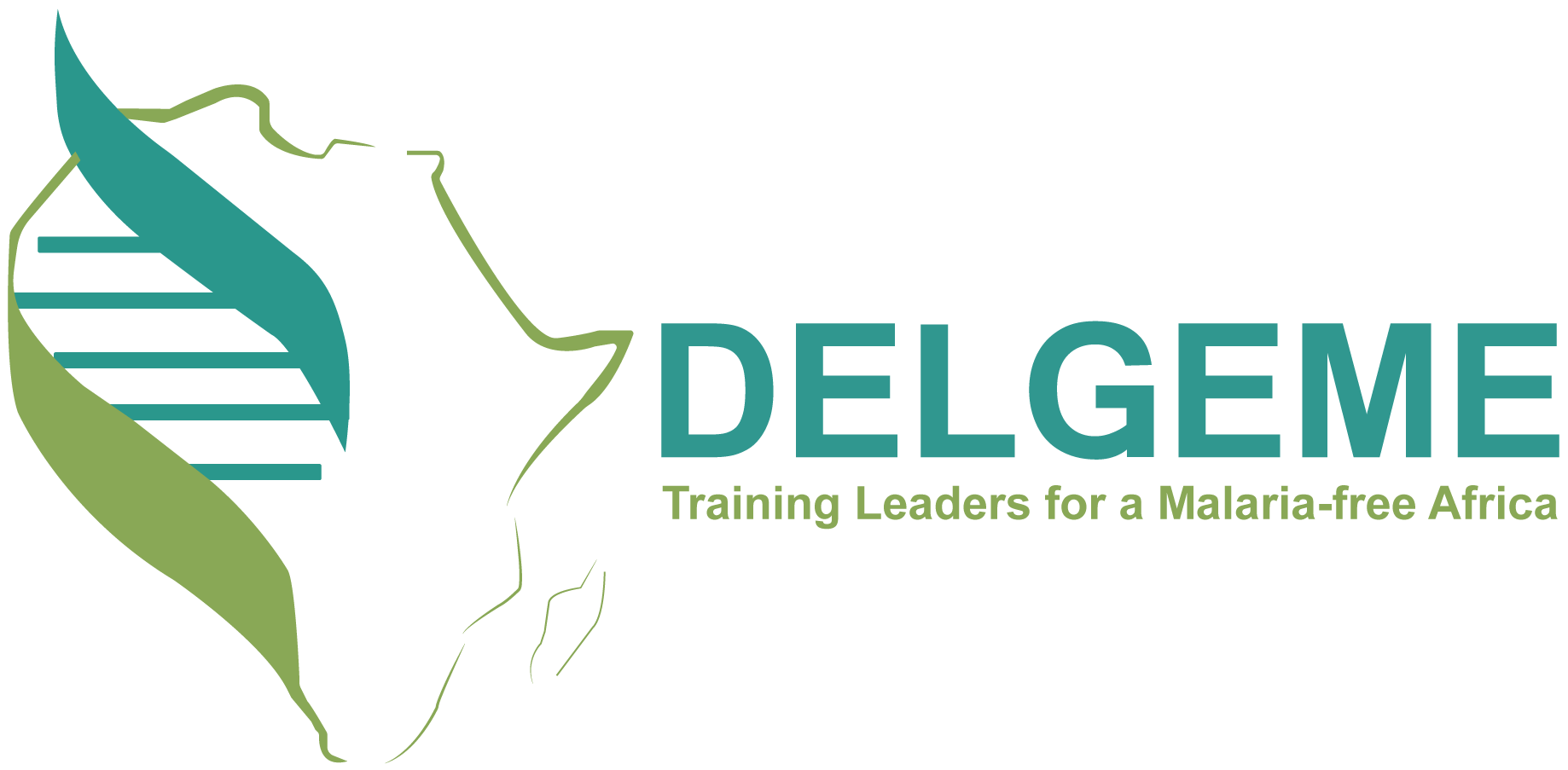The Developing Excellence in Leadership and Genomics Training for Malaria Elimination and AntiMicrobial Resistance control in Africa (DELGEME Plus) at the University of Sciences, Techniques and Technologies of Bamako (USTTB) is a training programme, part of Developing Excellence in Leadership, Training, and Science in Africa (DELTAS Africa), a programme of the Science for Africa Foundation (SFA) being implemented with support from Wellcome and the UK Foreign Commonwealth and Development Office (FCDO). The Programme is led by the University of Science Techniques and Technologies of Bamako, Mali (USTTB). Partner institutions are The Medical Research Council Unit The Gambia at the London School of Hygiene & Tropical Medicine; University of Ibadan, Nigeria; The Noguchi Memorial Institute for Medical Research (NMIMR), University of Ghana; Stellenbosch University, South Africa, The Kenya Medical Research Institute and Université des Sciences de la Santé of Libreville (USS), Gabon.
DELGEME Plus is offering a 2-year Master of Science (MSc) in Antimicrobial Resistance (AMR) at the University of Sciences, Techniques and Technologies of Bamako, Mali, beginning in 2023.
Africa with the capacity to eliminate malaria and overcome microbial drug resistance.
To mitigate AMR, a global problem and African priority.
The programme will train African candidates who have interest in one or more of the following themes:
- To resolve transmission dynamics of malaria, HIV, TB, fungi, and priority resistant bacteria to inform public health policies and elimination strategies.
- To investigate the contribution of antimicrobial stewardship, infection prevention and control, host and environmental factors to AMR in the context of sub-Saharan Africa.
- To use genomics, transcriptomics, proteomics, metabolomics and bioinformatics tools for the discovery of novel diagnostics, drugs, and vaccines candidates against the target infectious pathogens.
- Formal long-term curricula (big data science, biostatistics, health informatics, genomics, cell biology, molecular biology and bioinformatics) will be designed and implemented with contribution and oversight from a wide range of local and International Faculty and relevant advisory boards.
Our governance structure ensures a smooth running of the Program by an Executive arm with oversight from two advisory bodies. This is designed to help the project stay on track in delivering while decisions are well informed and unbiased. The oversight bodies include a Scientific and Training Advisory Board (STAB) of up to 7 members, who are experts and respected leaders in our fields of interest but external to the Institutional Partners and the Programme Management Board (PMB) which will include the Principal Investigators of the PDNA.
The Executive Board (EB) includes the Program Director, the Project Officer and the Administration. The final layer includes our 5 Strategic Hubs:
i)Training Hub led by USAMRU – Kenya and the MRC Gambia;
ii) Research Management Hub led by NMIMR, Ghana;
iii) Strategic Leadership and Scientific Citizenship hub led by MRTC, Gabon and NIMR, Tanzania ;
iv)Technical support hub, which includes one co-applicant (BNI, Germany) and one strategic collaborator (Kwiatkowski group, Oxford-Sanger, UK).

